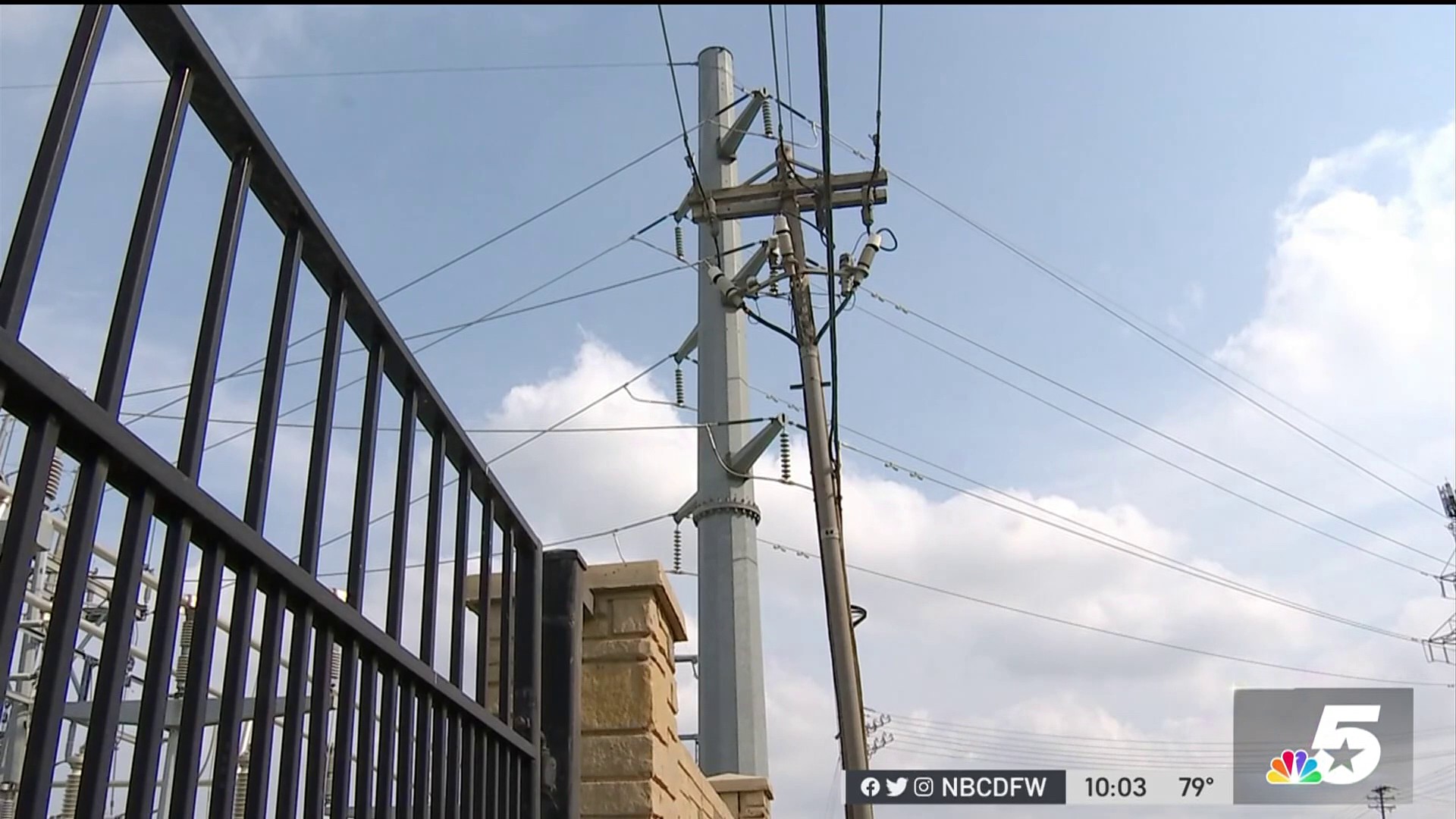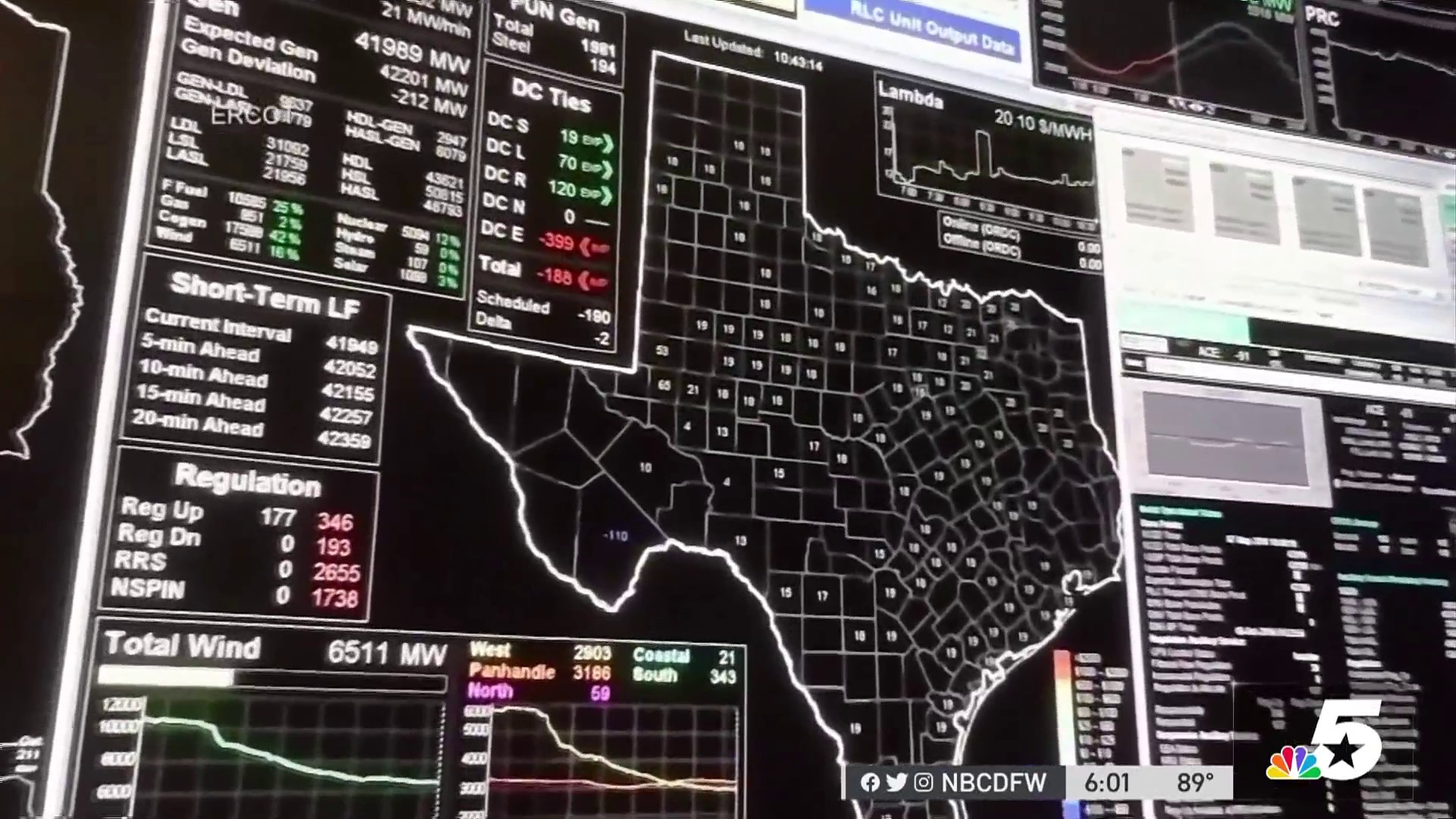ERCOT is extending again an ongoing Weather Watch due to extreme heat, higher electrical demand and the potential for lower reserves.
ERCOT, or the Electric Reliability Council of Texas, Inc., is the agency that manages the state's power grid. Earlier this week they extended a Weather Watch warning through Friday and on Friday they extended that warning for another seven days until Friday, Aug. 18.
At this time, there has been no Voluntary Conservation Notice issued.
The announcement comes one day after Texans set another new all-time record for power consumption with demand peaking Thursday, Aug. 10 at 85,435 MW. The demand on Thursday was nearly 1,500 MW more than the day before, which was also a record breaker.
Get DFW local news, weather forecasts and entertainment stories to your inbox. Sign up for NBC DFW newsletters.
- June 19 -- 79,304
- June 26 -- 80,144
- June 27 -- 80,787
- July 12 -- 81,351
- July 13 -- 81,406
- July 17 -- 81,911
- July 18 -- 82,592
- July 31 -- 82,939
- Aug. 1 -- 83,593*
- Aug. 7 -- 83,854*
- Aug. 9 -- 83,961*
- Aug. 10 -- 85,435*
*indicates the record is unofficial
ERCOT's 6-day Supply and Demand dashboard is showing the possibility of the all-time peak demand records being toppled again as early as Monday.
This summer, ERCOT has set 12 new all-time peak demand records, including five times in July and four times so far in August. Last year, ERCOT set 11 new peak demand records, surpassing 80 GWs for the first time ever.
ERCOT's Weather Watch is an advanced notification that is sent out under normal grid conditions about 3-5 days before a weather event to tell the public there may be a higher demand for electricity due to a forecasted event and that they should pay attention to changing conditions.
In May, ERCOT announced the launch of the Texas Advisory and Notification System (TXANS) which includes two alerts, the ERCOT Weather Watch and a Voluntary Conservation Notice where Texans will be asked to voluntarily reduce usage during peak times -- if it is safe to do so.



